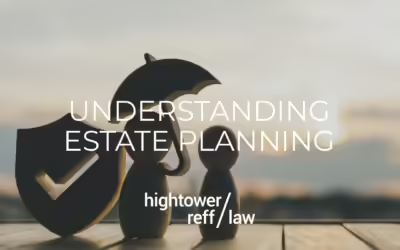“What is a trust, and why do I need one?” We hear this question a lot, so let’s address the basics.
Trusts are important to ensure your beneficiaries will receive any inheritance without any problems. Trusts can also help protect your assets and eliminate probate time (the amount of time spent in court after a person’s death). This blog will help you understand the basics of trusts.
Who Is Who?
At a basic level, a trust is a fiduciary relationship, where a Trustee holds assets on behalf of a beneficiary. Typically there are three people involved in a trust arrangement:
Settlor: The Settlor is the person that creates a trust or puts assets, like money or property, into one. In other states, this person may be referred to as a Grantor or Trustor.
Trustee: The Trustee is the person picked by the Settlor to hold the assets and manage, account for, and distribute based on what the Settlor has outlined in the trust document. The Trustee is a fiduciary, meaning that they owe certain obligations to the Settlor and Beneficiary.
Beneficiary: A Beneficiary is the person who has an interest in the trust, either presently or at some point in time in the future. A Beneficiary is named by the Settlor as the person to receive benefits.
What Different Kinds of Trusts Are There?
There are many different types of trusts in estate planning that provide various benefits to an estate plan, depending on what the overall goal is of the Settlor. The two most common types of trusts we see in estate planning are testamentary trusts and living trusts.
Testamentary Trust
A Testamentary Trust is a trust that is created as part of a person’s Last Will and Testament. The terms are set out by the Settlor in their Will, but the Testamentary Trust does not exist until after the Settlor passes away. Once the person dies, their Personal Representative sets up the Testamentary Trust based on the information provided in the Will. It then holds the assets, managed by a Trustee, for the benefit of beneficiaries identified by the Settlor. A probate proceeding is required in order for the Trust to be established by the Personal Representative. A Personal Representative is appointed under a Will to administer the deceased person’s estate. The probate proceeding allows for the transfer of the deceased person’s estate assets into the Trust. You can also pay other assets, like life insurance proceeds, to a Testamentary Trust.
Living Trust
A Living Trust is a trust that is created now, while the Settlor is alive. It is a separate document from the Last Will and Testament. It is created to hold assets during the life of the Settlor and, upon the Settlor’s death, managed or distributed to contingent beneficiaries. During the life of the Settlor, the Settlor is also the Trustee and the Beneficiary. Once the Settlor dies, a successor Trustee is appointed (per the terms of the trust document) and, in its simplest form, contingent beneficiaries become vested in their share of the trust estate. If done right, it allows a person’s estate to pass to their beneficiaries without going through the probate process in court. The Living Trust can hold all kinds of assets, similar to the Testament Trust.
Keep Control.
Trusts offer the ability to the Settlor to control how their assets are distributed at death. For example, they can provide for graduated distributions to young beneficiaries. Rather than a child receiving all of their inheritance at once, they can receive certain amounts at predetermined ages. A Settlor can also give a Trustee discretion to provide assets to a beneficiary for things like a down payment on a house, college, a wedding, or business venture.
In an age of myriad family dynamics, a Trust can also allow for distribution to multiple beneficiaries in all sorts of different ways. For example, if a Settlor has remarried and wants to make sure to provide assets for a surviving spouse as well children from the first marriage. Or maybe a Settlor wants to make sure grandchildren have graduated distributions for college. The possibilities are endless.
Trusts are about options. Done correctly, a trust can provide expedient and controlled distribution of a Settlor’s estate. At Hightower Reff Law, we have experienced estate planning attorneys who can help you create the estate plan that is right for you.
This article should not be construed as legal advice. Situations are different and it’s impossible to provide legal advice for every situation without knowing the individual facts.
Click here for additional resources on estate planning.




